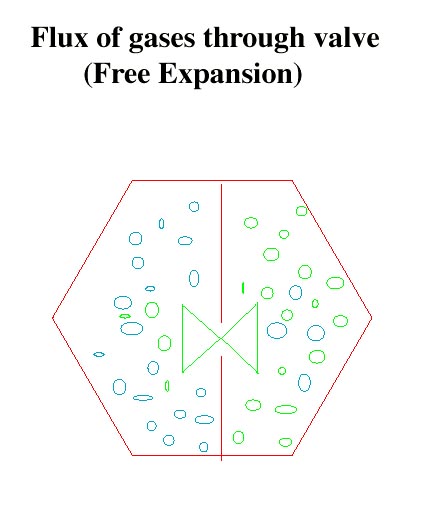![[Maple Math]](images/projectt1.gif)
Abebi Stafford 18.5-2 (Thermal Diffusion)
> restart; A necessary command to make the session work
the temperature gradient in the two bulb system for mass flux:

> j[AzT]:= -c^2/rho *M[A]*M[B]*D[AB]*k[T]/T*diff(T(z),z);
![[Maple Math]](images/projectt1.gif)
the mass flux tends to cause an opposed concentration gradient:
> j[AzX]:= -c^2/rho *M[A]*M[B]*D[AB]*diff(x[A](z),z);
![[Maple Math]](images/projectt2.gif)
it is a closed system and hence no mass flux will occur .
> twoflux:=j[AzT]+j[AzX]=0;
![[Maple Math]](images/projectt3.gif)
> y:=simplify(twoflux);
![[Maple Math]](images/projectt4.gif)
> twoflux2:= y/(c^2*M[A]*M[B]*D[AB]/(rho*T));
![]()
multiply both sides by 'dz':
> newequation:=int(1,x=x[A1]...x[A2])= -int(k[T]/T,T= T[1]...T[2]);
![[Maple Math]](images/projectt6.gif)
this is used to estimate the order of magnitude of thermal effects by diffusion
now we need the recommended mean temperature...
> Tmean:= (T[1]*T[2]/(T[2]-T[1]))*ln(T[2]/T[1]);
![[Maple Math]](images/projectt7.gif)
let's try out 18.B to see if we have a winner...
> T[1]:=200; T[2]:=600; k[T]:=.0166;
![]()
![]()
![]()
specs for Deuterium; if the kt isn't given you can find it in matlab's mixkt using the mole ratios of the two substances.
> simplify(newequation);
![]()
Deuterium is .01823 lower in the hot bulb
> evalf(Tmean);
![]()
this is the temperature at which the average kT should be evaluated.
It checks out.